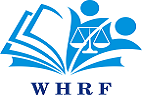LITHUANIA
Lithuania’s alleged complicity in the CIA’s rendition and secret detention programme remained under scrutiny. LGBTI people continued to face discrimination. Measures taken in response to the COVID-19 virus negatively affected women.
Torture and other ill-treatment
The case of Al-Hawsawi v Lithuania remained pending before the European Court of Human Rights (ECtHR). Mustafa Al-Hawsawi, a Saudi Arabian national detained at Guantanamo Bay, claimed he had been held at a secret CIA detention centre in Lithuania and subjected to enforced disappearance, arbitrary detention and torture by the CIA between 2005 and 2006. In January, lawyers for Mustafa Al-Hawsawi filed their response to Lithuania’s submission to the ECtHR.
Rights of lesbian, gay, bisexual, transgender and intersex (LGBTI) people
Discrimination against LGBTI people remained prevalent in Lithuania. In January, the ECtHR found in favour of two gay men who had been subjected to online comments amounting to incitement to hatred and violence against LGBTI people. The authorities refused to investigate the comments, stating that the applicants’ behaviour had been “eccentric” and deliberately provocative and citing “traditional family values” in Lithuania. The ECtHR found that the applicants had suffered discrimination on the grounds of sexual orientation and been denied an effective domestic remedy.
Women’s rights
The Equal Opportunities Ombudsperson voiced concern that measures imposed to prevent the spread of COVID-19 disproportionately affected women, noting an increase in reports of domestic violence to police. Civil society groups reported that some health care providers had suspended or cancelled abortion services during the nationwide lockdown from March to June, restricting women’s access to sexual and reproductive health care.
Right to privacy
In April, the government proposed an amendment to the Law on Electronic Communications in response to the spread of the COVID-19 virus. The amendment would grant law enforcement broad powers to obtain a person’s location data from telecommunications providers during a state of emergency or declared quarantine, without prior judicial authorization. Opposition politicians and health workers’ associations warned that the proposed powers would enable widespread surveillance and have limited public health benefits.
